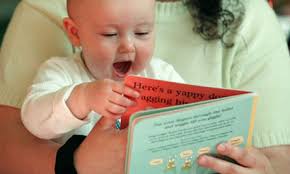A child’s brain is built word by word. We have the data that supports the importance of early childhood education for future success in and out of school. We also have the economics behind the benefits of early education because less money is later spent on juvenile courts, prisons, health care and welfare says James Heckman, a Nobel-wining economist at the University of Chicago.
The findings show that children need to be raised with lots of play and conversation. By age 4, a child of professionals has heard 30 million more words than a child on welfare. Talking develops a child’s use and understanding of language, which is the basis of reading. Vocabulary development by age 3 has been found to predict reading achievement and has been empirically connected to reading comprehension. Heckman says, “ the best metric of child poverty may have to do not with income but with how often a child is spoken and read to. Sixty to seventy percent of the achievement gap between rich and poor kids is already evident by kindergarten.
Children’s brains grow at a dazzling pace in the first years of life. Research tells us the first three years of life offer a critical window for brain development. Each of us is born with a genetic blueprint—a basic design. The brain at birth is only 25% developed. By the age of 3 the brain is 80% developed.
Most of a baby’s 100 billion brain cells aren’t yet connected in networks. Those cells become connected when babies have stimulating experiences— reading singing, talking, playing—all language related activities. Early language experience actually stimulates a child’s brain to grow and speech and language development require stimulation.
The time you spend reading and talking with your child is far more valuable than spending time trying to teach them to read. Reading is a developmental skill and many of the skills a child’s brain needs to enter school, ready to learn to read, are first learned in conversation. Words are the building blocks of a child’s brain.
Simply stated—children are too small to fail. Parental involvement and early childhood education protect children from failure.


